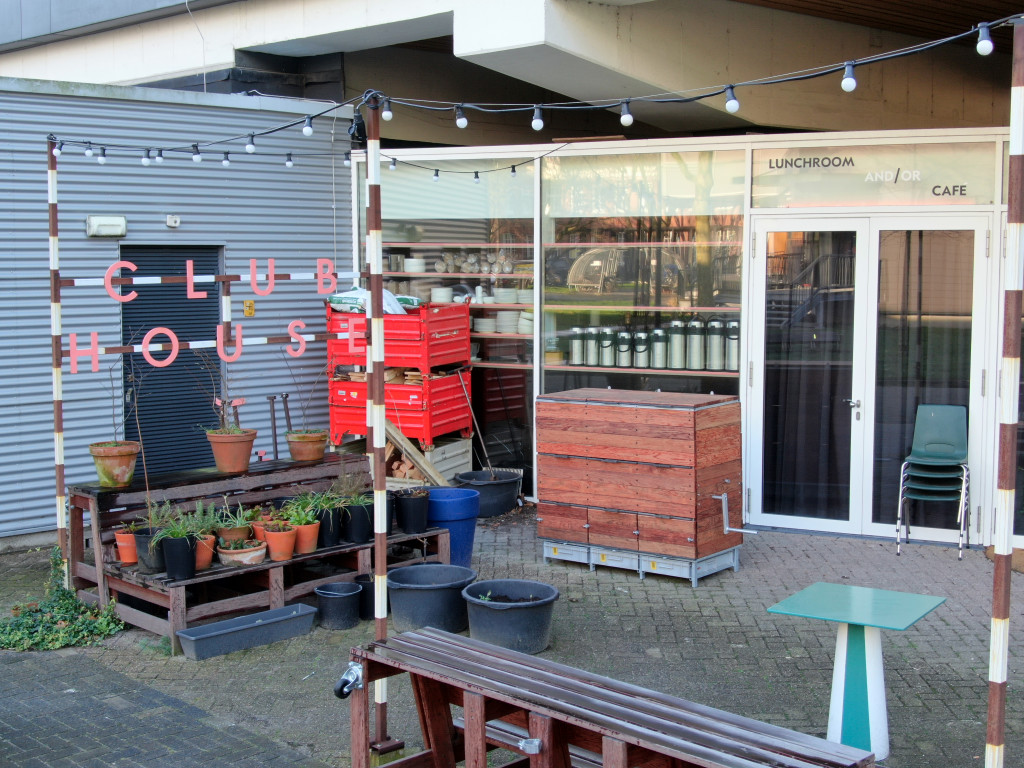Wormclub
BA Major Design – Graduation Project
2020.1

When organic waste is not collected, it fills our landfills and pollutes the air. Organic waste, in fact, produces methane gas, a powerful greenhouse gas.
Research has shown that composting can keep up to 40% of organic food waste out of the landfills.
This study investigates composting organic food waste in general, with special focus on a specific assignment: The ‘Clubhouse’ Café and Lunchroom based in Amsterdam, The Netherlands, that is following a sustainable and organic approach with the aim to reduce the amount of food waste finishing up in landfills.
By reading books and articles and by consulting with experts I gained deeper knowledge about the field, until I identified the method of degradable waste separation most suitable for a restaurant.
Since the main component of organic waste accumulated in a restaurant is food, composting the kitchen scraps via vermiculture seems to be the ideal solution.
The revelation that there is no general organic waste separation in Amsterdam, but only neighbourhood projects, made the topic even more interesting. With this method, Clubhouse benefits from the waste produced by turning it into a highly valuable fertilizer. In addition, it opens up possibilities for collaboration with Marineterrein, making composting accessible to other people as well and raising social awareness about the subject.
Bioabfälle, die nicht getrennt entsorgt werden, belasten nicht nur zusätzlich die Mülldeponien, sondern auch die Atmosphäre, denn sie produzieren das Treibhausgas Methan. Studien zufolge kann durch Kompostierung der Anteil an organischen Abfällen in den Deponien um bis zu 40 % gesenkt werden.
Diese Thesis untersucht die Kompostierung organischer Abfälle im Allgemeinen, sowie das spezifische Projekt des Cafés „Clubhouse“ in Amsterdam, das mit dieser nachhaltigen Methode die Menge an Abfällen, die auf der Deponie landet, signifikant reduziert. Für Restaurants ist eine gut geplante Kompostanlage als Teil eines ökologischen Gesamtkonzepts anzusehen.
Aus Büchern und Artikeln, und Gesprächen mit Experten habe ich ein fundiertes Grundwissen über die Thematik gewonnen, und beim Design und der Fertigung eines Wurmkomposters angewendet.
Meine Untersuchung zeigt, welche Methoden zur Trennung organischer Abfälle und welche Kompostieranlagen für ein Restaurant geeignet sind. Da hier überwiegend Lebensmittelreste anfallen, ist die Wurmkompostierung eine ideale Lösung. Herauszufinden, dass es in Amsterdam keine Biomüll-Sammlung, sondern nur örtliche Projekte gibt, machte das Thema noch interessanter. Das „Clubhouse“ wandelt seine Abfälle in hochwertigen Dünger um, regt aber in Zusammenarbeit mit dem Marineterrein auch zum Mitmachen an, und sensibilisiert für die Kompostierung.













